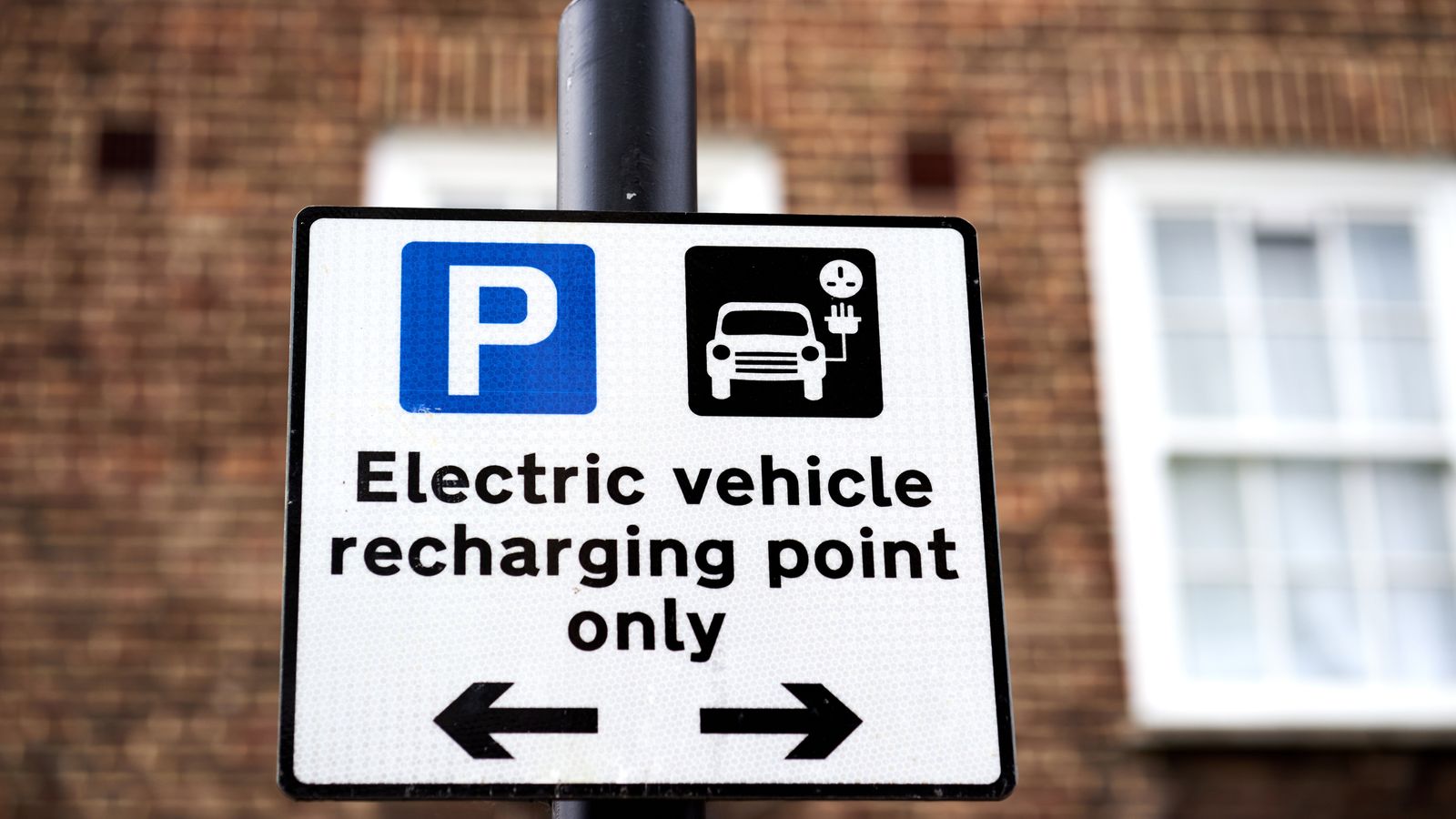Almost three-quarters of electric vehicle (EV) owners are unhappy with the UK’s public charging system, a new survey has found.
The poll of almost 1,500 drivers of electric, or plug-in hybrid vehicles, by Which? highlights the difficulties many motorists face in finding a charger that works.
Some 74% of respondents said they were dissatisfied with charging infrastructure.
Two out of five (40%) reported finding a non-working charger, while 61% have suffered difficulties making payments.
The vast majority of EV owners (84%) who use public chargers want the option of paying by a contactless bank card, the survey also found.
Most charge points require drivers to pay through an app.
Almost half (45%) of those questioned estimated that the nearest public on-street charge point to their home is more than a 20-minute walk away.
UK new car sales slump to worst June in 26 years as manufacturers struggle with supply problems
China: Two killed as NIO electric car falls from third floor of Shanghai building
Energy giant Shell to install 50,000 more electric vehicle charge points in UK by 2030
Government urged to do more
Sue Davies, head of consumer protection policy at Which?, said: “Our research shows that the public EV charging infrastructure is falling short as many drivers struggle to find reliable charging points in good working order, have to navigate confusing payment systems, or are unable to rely on adequate charging points close to their homes or to get them through a long journey.
“The government must move quickly to implement its plans to improve the consumer experience of using the public charging networks by extending reliability standards across the full network and ensuring proposals for payment roaming make paying to charge much simpler.
“Charging must be easy, reliable, and seamless to support people making the move to an electric car.”
Many of these public EV charge points are operated by local councils.
David Renard, transport spokesman for the Local Government Association, which represents more than 350 local authorities across England and Wales, said: “Reliability and ease of use of the charging infrastructure will be vital to continue attracting more people to make the switch to greener transport.
“Councils need long-term financial support from Government so they can help ensure there are robust and accessible local charging networks to support our communities and businesses to adopt cleaner travel and tackle climate change.”
EV sales slow
It comes as figures suggest there the rapid increase in sales of new pure electric cars has slowed in recent months.
The number of registrations during the first three months of the year was 102% more than during the same period in 2021.
At the end of August, the year-to-date increase had fallen to 49%.
A Department for Transport spokesperson said: “We have one of the largest charging networks in Europe, and are working to ensure drivers can access charge points across the country which are reliable, consistent, and seamless to use.
“Since 2020 we have committed £1.6 billion to improve the charging network and are on track to have 300,000 public charge points by 2030.”






